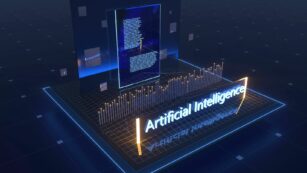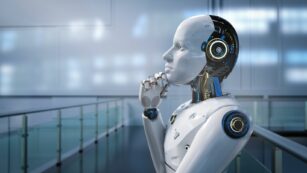In the rapidly evolving world of artificial intelligence (AI), generative AI stands out as a groundbreaking technology that’s reshaping industries, from creative arts to software development. At its core, generative AI refers to algorithms that can create new, original content, be it text, images, or even code, based on the data they’ve been trained on. But where does machine learning, the engine driving much of today’s AI innovations, fit into the generative AI landscape?
Is Generative AI Machine Learning
Generative AI is indeed a branch of machine learning that focuses on algorithms capable of creating data similar to what it has been trained on. This connection underscores the power of machine learning to enable systems to learn and adapt without being explicitly programmed. By harnessing generative models, AI can produce new content, ranging from text to images and even code, echoing the variety and complexity of human-generated content. This synergy between generative AI and machine learning forms the bedrock of advancements in digital interactions, catalyzing a transformative impact across various industries.
Exploring the Role of Machine Learning in Generative AI
 Machine learning plays a crucial role in generative AI, enabling systems to learn from and adapt to data without being explicitly programmed. Generative AI, a branch of machine learning, thrives on algorithms designed to create new data similar to its training set. This process not only enhances the capabilities of AI models in generating human-like text, images, and code but also underpins technological progress across various sectors. Such advancements illustrate the dynamic relationship between generative AI and machine learning, showcasing how integral machine learning is to the evolution and functionality of generative AI systems. Through this synergy, generative AI continues to redefine the limits of what machines can generate, embodying the essence of machine learning at its core.
Machine learning plays a crucial role in generative AI, enabling systems to learn from and adapt to data without being explicitly programmed. Generative AI, a branch of machine learning, thrives on algorithms designed to create new data similar to its training set. This process not only enhances the capabilities of AI models in generating human-like text, images, and code but also underpins technological progress across various sectors. Such advancements illustrate the dynamic relationship between generative AI and machine learning, showcasing how integral machine learning is to the evolution and functionality of generative AI systems. Through this synergy, generative AI continues to redefine the limits of what machines can generate, embodying the essence of machine learning at its core.
Key Applications of Generative AI
Generative AI, a subset of machine learning, significantly impacts various sectors by creating data that closely resembles its training sets. This capability not only propels technological innovation but also streamlines content generation processes across industries. The following sections delve into key applications where generative AI demonstrates its value and versatility.
Enhancing Creativity with Generative Design
 Generative design exemplifies how generative AI is reshaping industries such as architecture, engineering, and product development. In these fields, generative AI algorithms generate a multitude of design alternatives based on specific criteria and constraints provided by the user. This not only accelerates the design process but also uncovers innovative solutions that may not have been considered otherwise.
Generative design exemplifies how generative AI is reshaping industries such as architecture, engineering, and product development. In these fields, generative AI algorithms generate a multitude of design alternatives based on specific criteria and constraints provided by the user. This not only accelerates the design process but also uncovers innovative solutions that may not have been considered otherwise.
Architects and engineers benefit from generative design by exploring more options in less time, thus boosting creativity and efficiency. For instance, in architecture, generative AI can produce diverse building layouts that optimize for light exposure, space utilization, and energy efficiency, all while adhering to the aesthetic requirements set by architects.
Automating Content Creation
 Content creation is another area where generative AI has a profound impact, revolutionizing how text, images, videos, and code are generated. This technology empowers marketers, writers, and developers by automating the production of diverse content types, aligning closely with human creativity but executed at machine speed.
Content creation is another area where generative AI has a profound impact, revolutionizing how text, images, videos, and code are generated. This technology empowers marketers, writers, and developers by automating the production of diverse content types, aligning closely with human creativity but executed at machine speed.
For marketers, generative AI tools facilitate the creation of personalized advertising content that can adapt to different demographics and consumer preferences, significantly enhancing engagement rates. Similarly, in journalism, generative AI assists in drafting articles and reports, especially for data-driven stories, by analyzing vast datasets and generating coherent summaries, thereby reducing the time and effort required for preliminary research.
Challenges and Ethical Considerations in Generative AI
Navigating Data Bias and Quality Issues
Data bias and quality pose significant challenges in the realm of generative AI. These systems learn from vast datasets, making them susceptible to inheriting and even amplifying any biases present in the training data. It’s a concern that impacts the fairness, inclusivity, and accuracy of generative AI outputs, from automated decision-making processes to the creation of digital content.
Recognizing and Mitigating Bias
Identifying bias within datasets is the first step towards mitigation. Generative AI models, due to their dependency on machine learning, must undergo rigorous evaluation to detect and correct biases. This process involves scrutinizing the data sources, the diversity of the datasets, and the algorithms’ neutrality.

